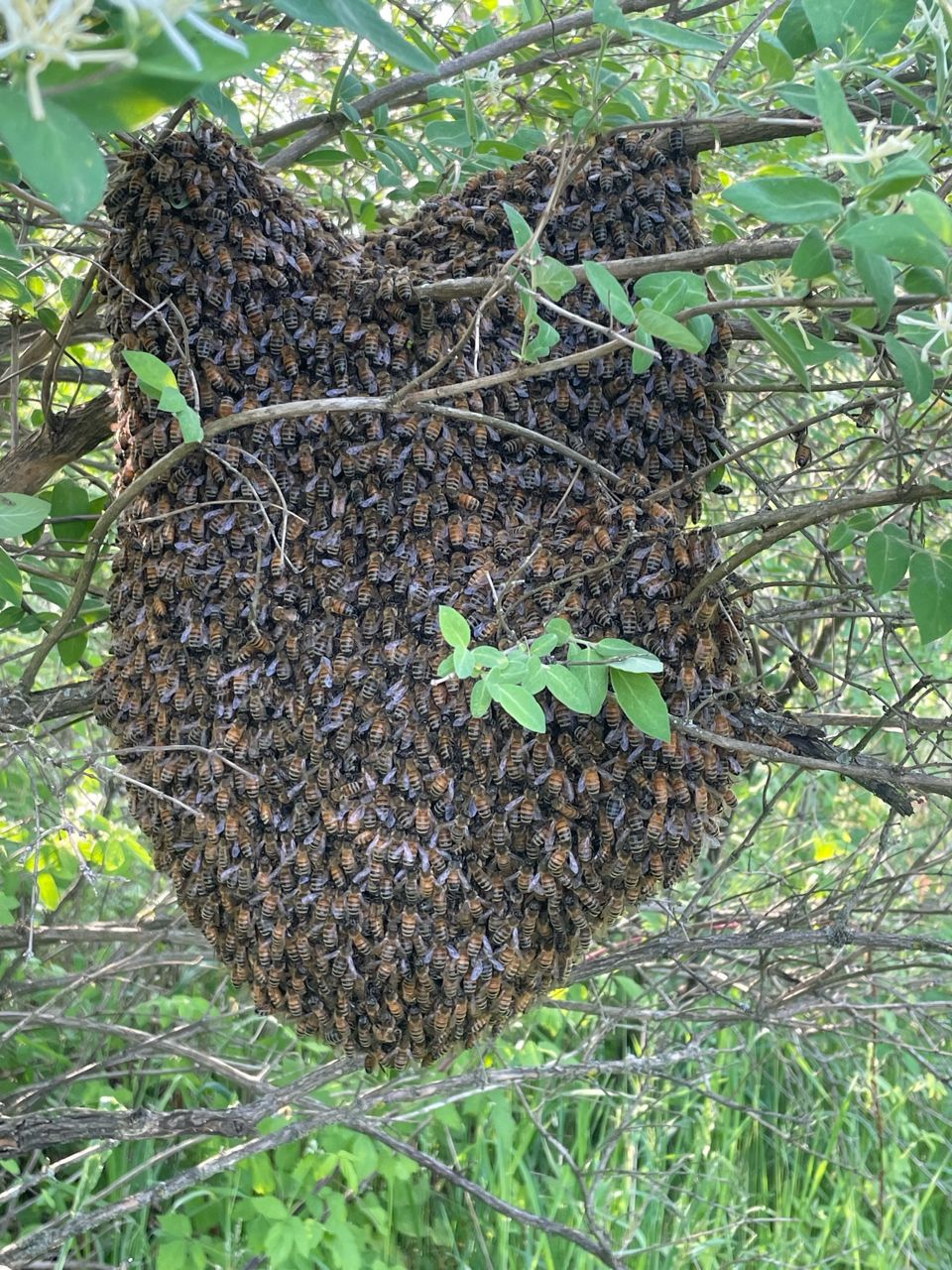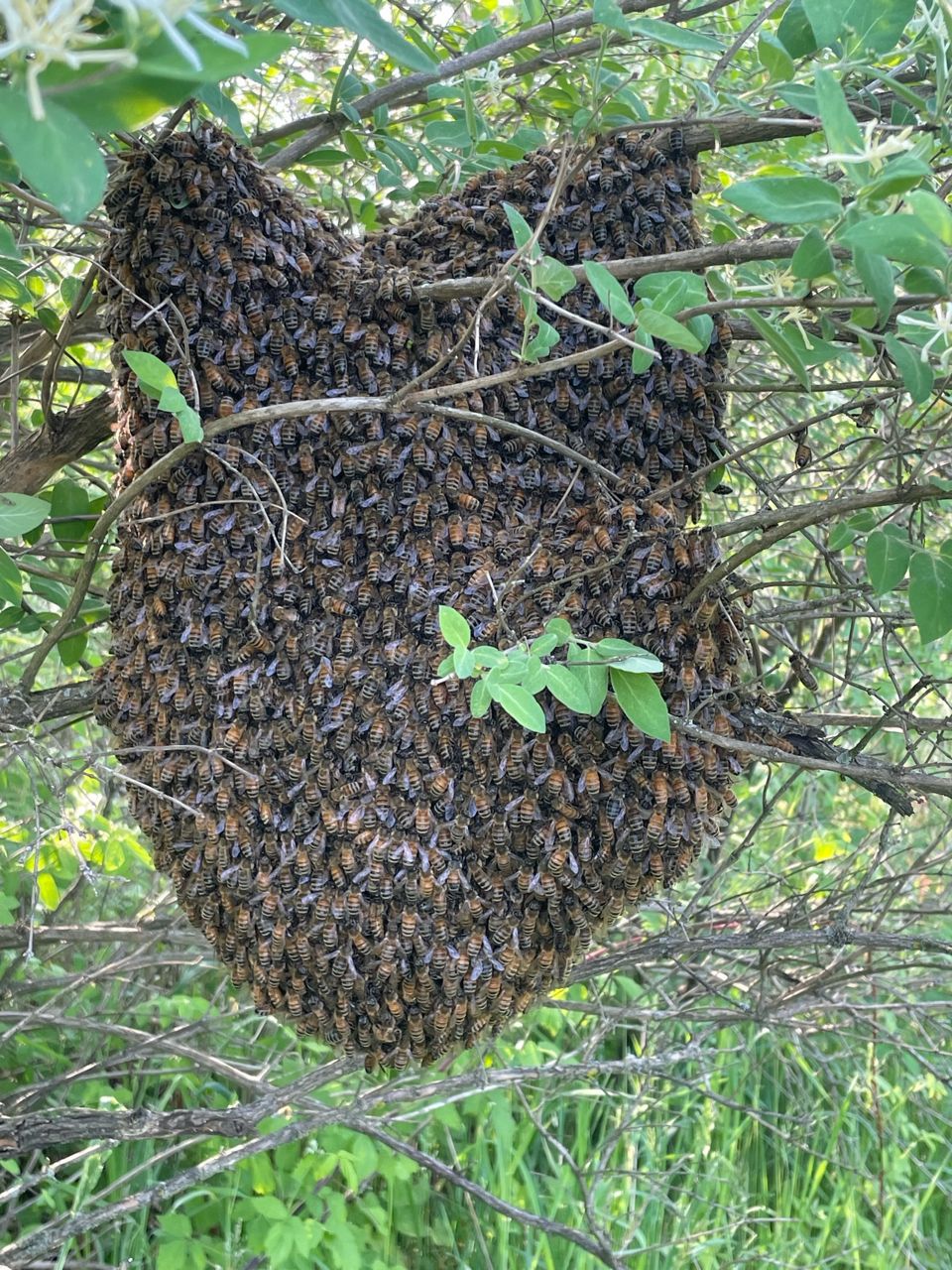CANTON, Ohio — An Akron-Canton Airport staffer’s personal hobby has become a boon to the local ecosystem. It has also captured the interest of a growing number of airport employees.
In partnership with Hartville Honey Bee Farm, the airport installed 60 bee colonies — about 3 million bees — in the last week, all in the name of good environmental stewardship and sustainability, said Vice President of Air Service and Business Development Lisa Dalpiaz.
It started when Adam Dietry, the airport’s assistant manager of environmental services, began researching beekeeping for his own purposes and found that other airports, which traditionally have lots of green space, keep bees on site, Dalpiaz said.
Dietry pitched the idea to the airport, which led to the partnership with Hartville Honey Bee Farm’s Mike White, who breeds, sells and raises honeybees.
Despite the newly installed hives, there’s no danger of airport visitors encountering the bees, as the airport has 2,400 acres, Dalpiaz said.
“Where they’ve been placed there’s a ton of flowers and pollen and things that they love, and we have a lot of hills and valleys,” she said.
White strategically positioned the colonies far out on the property, not only to avoid travelers, but to capture the optimal amount of sun for honeybees while providing protection from the wind so the colonies can thrive, she said.
It appears to already be working.

One of the airport’s honeybee colonies swarmed, which means it is already growing. (Photo courtesy of the Akron-Canton Airport)
“This morning, when we were out there, the colony had started to grow,” Dalpiaz said. “What happens when they start to grow is they produce their own queen cell and upon that, they move outside the hive, and they’ll swarm onto a bush.”
And swarm they did. To accommodate the swarm, White is bringing out another of the wooden boxes that serve as beehives, she said.
The bees bred at Hartville Honey Bee Farm are hybrids, which means they’re heartier and more resistant to mites, Dalpiaz said.
According to the U.S. EPA, mites are among perils bees face, along with pesticides, that contribute to Colony Collapse Disorder, a phenomenon that drew attention to the world’s declining bee population several years ago.
To keep the airport honeybees safe and heathy, White is teaching Dietry and his environmental services colleagues, Scott Hostler and Tony Gentile, how to care for the hives, Dalpiaz said.
For fun, the trio now refer to themselves as the “Bee Amigos,” a nod to the ‘80s Western Comedy “Three Amigos.”
But silly moniker aside, the airport staffers are taking beekeeping seriously.
“Every single time that I hear them talk about it, I learn more and more,” Dalpiaz said. “I think that the stat is one out of every three bites of food that you have has been pollinated by a honeybee. It’s just so important to have this in our community.”
As the bees propagate, the airport beekeepers will find new spots or expand the spots the bees are currently in, she said.
It’s not just about helping bees thrive — the plan is to collect the honey and sell it in the airport gift shop, and the online store, with the proceeds going to local environmental causes, she said.
The benefits of that are two-fold.
“It can be tested for cleanliness, heavy metals, etc., so when you test it, what’s actually been occurring in other airports, is that it ends up being cleaner than what’s on the store shelves, so it’s a good way to monitor air quality,” Dalpiaz said.
The other benefit?
“We can sell it and enjoy it,” she said.
Bees don’t begin producing honey in a new hive immediately, so the airpor beekeepers have time to learn how to properly test the honey and package it, she said.
Planting more native flora attractive to honeybees also could be on the horizon for the airport.
“In the next year or so, especially as we get a couple more folks interested in this, and it seems like anyone who’s been on the project is super invested, I would not put it past our teams to do some more wildflowers and things like that,” she said.
Dalpiaz said she was impressed by the comradery among local beekeepers.
“There are no trade secrets; nobody’s trying to keep any kind of expertise hoarded away,” she said. “They’re all just looking to help each other out.”
One way White is doing that, she said, is by installing his mite-resistant bees far from his own hives to help create a more tolerant bee-strain in the broader community.
“He’s really strategic about it,” Dalpiaz said. “It’s cool to see how everybody works together.”




